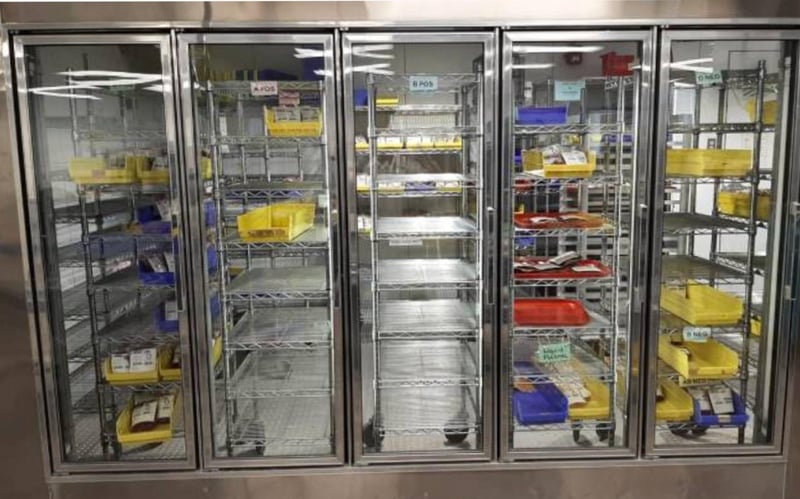Patient Resources
Get Healthy!
Red Cross Says U.S. Blood Supply at Dangerously Low Level
- January 11, 2022
- Robert Preidt and Robin Foster
- HealthDay Reporter

There's an urgent need for blood donations as the United States' blood supply drops to one of its lowest levels in over a decade, the America Red Cross said Tuesday.
In the past few weeks, blood centers nationwide have reported "a dangerously low level" of less than a one-day supply of certain critical blood types, which means that lifesaving blood may not be available for some patients when they need it.
Kristen Mill, of Spring Grove, Ill., has already faced that.
Ever since she was bitten by a tick in 2008, her body doesn't produce enough hemoglobin to carry oxygen in her blood. When her hemoglobin levels drop, she needs blood transfusions to survive. But on a recent visit to the hospital for a transfusion, there was no blood for her.
"The hospital came to me and they apologized, and they said, 'We're so sorry, our blood bank is depleted to the point where we don't have anyone that matches with you,'" Mill said in a Red Cross news release. "It's very scary, especially if you don't know if the blood is coming, because this is something that you need to live."
Unfortunately, Mill has had to wait for blood before.
"It has become quite common that I would have to wait two or three days for blood. Then my condition would get worse, and I'd need to be hospitalized while waiting for blood. It usually took two days, sometimes three days, which is a long time when you are waiting for something that could save your life," Mill noted.
After personally experiencing what a blood shortage means, she has become an advocate for blood donation.
"I don't want this to happen to other people," Mill said. "There is nothing greater you can give someone than the gift of life. To have people donating lifesaving blood is just incredible and essential."
And desperately needed right now: Blood centers have struggled with declines in blood donor turnout, blood drive cancellations, staffing shortages and misinformation about donor eligibility. Surging COVID cases and winter storms threaten to further disrupt the nation's blood supply, according to a statement from the Red Cross, the Association for the Advancement of Blood and Biotherapies and America's Blood Centers.
"Some hospitals have already been forced to alter treatment for some patients or cancel some patient surgeries due to blood supply challenges," the groups said.
They urged "healthy individuals to contact their local blood center and make an appointment to donate blood today," and also asked "local businesses to encourage their employees, including those working remotely, to find their local blood donation center and schedule an appointment to donate throughout 2022."
There is a constant need for blood because blood components have a short shelf life and the blood supply needs to be constantly replenished.
"Blood can take up to three days to be tested, processed and made available for patients, so it's the blood already on the shelves that helps save lives in an emergency," according to the joint statement.
More than 16 million units of blood and blood products are transfused each year in the United States, with more than 45,000 units needed daily.
People who have received any of the three COVID-19 vaccines authorized in the United States -- Pfizer, Moderna and Johnson & Johnson -- can donate blood and platelets as long as they are symptom-free and feeling well at the time of donation.
More information
To learn more about donating blood, go to the American Red Cross.
SOURCES: American Red Cross, news release, Jan. 11, 2022; joint statement, Association for the Advancement of Blood and Biotherapies, America's Blood Centers and American Red Cross, Jan. 10, 2022

